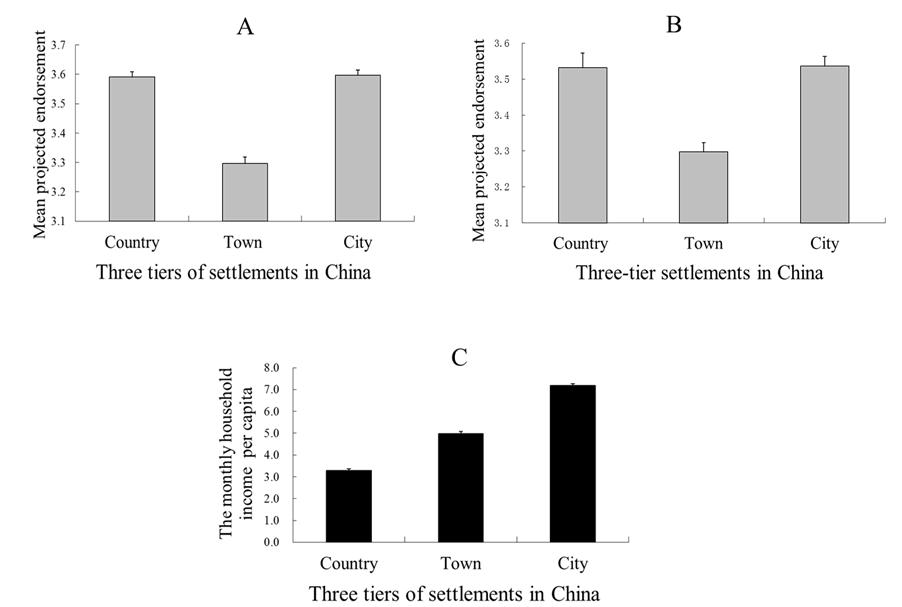
Previous studies on the effects of urbanization primarily focused on objective indicators, such as productivity, infrastructure development, economic growth, climate change, and life span. However, objective indicators reveal little about residents’ inner perspectives about whether urbanization really improves their quality of life. Prof. LI Shu’s research group from Institute of Psychology (IP) of Chinese Academy of Sciences paid great attention to the effects of urbanization in China on subjective indicators as referred to by Aesop's fable "The Town Mouse and the Country Mouse".
Instead of directly asking respondents’ attitudes towards their residence, the researchers inferred that four factors including selecting to reincarnate as a local/non-local inhabitant, choosing to marry a local/non-local projected future spouse, the willingness to pass on a dialect to an offspring, and emotionally reacting to discriminatory words against local people would detect whether inhabitants endorsed their own place of settlement without any biases. This variable was named as projective endorsement which reflects the place attachment of inhabitants.
Researchers conducted two-round surveys by using a stratified multi-stage random sampling technique to represent the three-tiered settlement hierarchy. The first round is a nationwide, in-home survey conducted from August to September in 2007 on a stratified random sample of 3,716 Chinese inhabitants across the three tiers of settlements (cities, country areas, and towns) to measure their projected endorsements of their settlements. The second round is the survey conducted from October to November in 2007 on a stratified random sample of 1,452 residents from the three tiers.
A V-shaped pattern was observed both in Study 1 and Study 2 (see the figure). The respondents from the three tiers of settlements differed significantly in their projective endorsements after controlling for gender, age, and education. Certain socioeconomic status and health conditions, such as the monthly household income per capita, improved monotonically along with urbanization in China. However, the subjective assessments by the participants, which were measured through indirect questions, did not follow the trend of the objective indicators. Researchers dubbed this V-shaped relationship the town dislocation effect.
Further analysis showed that only social support mediated the relationship between the three tiers of settlements and projective endorsements. The projected endorsements yielded significant subjective assessments that could enhance our understanding of Chinese urbanization. Towns posed specific problems that require special attention.
The study entitled “Town Mouse or Country Mouse: Identifying a Town Dislocation Effect in Chinese Urbanization” was published online in PLoS ONE.
This study was partially supported by the Science and Technology basic work, the Knowledge Innovation Project of the Chinese Academy of Sciences, the National Natural Science Foundation of China, the Special Fund for Beijing Key Discipline Construction, and the Project for Young Scientists Fund.

Data from the assessment of the effect of urbanization. Panels A and B indicate the mean scores of the inhabitants’ projected endorsements across the three tiers of settlements in Study 1 and Study 2. A higher score indicates a more positive assessment of the effect of urbanization. Panels Cindicate “the monthly household income per capita” (on a 13-interval scale) across the three tiers of settlements. (Image by IP)

86-10-68597521 (day)
86-10-68597289 (night)

52 Sanlihe Rd., Xicheng District,
Beijing, China (100864)

